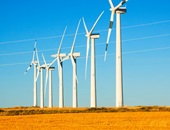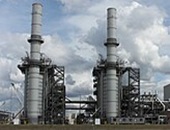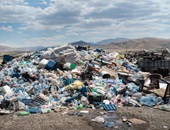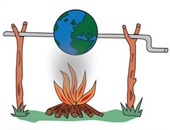What is the Cost of Biodiversity?
Biologists have long known that biodiversity is the key to nature’s resilience. In a biodiverse world, if the environment changes and some organisms can no longer thrive, others can take their place and fulfil functions that are essential to the species’ survival, and ultimately, human survival. Even the lowliest animals play significant roles, such as insects that pollinate—and a third of the food we eat depends crucially on insect pollinators. In addition to its intrinsic value, biodiversity underpins ecosystem services, providing the backbone of the global economy. Biodiversity loss, or the reduction in the genetic diversity of life forms, can […]
The Case for CBAM
In 2003, a devastating heat wave in Europe killed an estimated 70,000 Europeans, many of them elderly people living alone. This, and a series of other extreme weather events, have persuaded many countries to take climate change seriously. The European Union enacted the carbon border adjustment mechanism (CBAM). It came into effect as of October 1, 2023, and is designed to account for the carbon cost of producing imported goods, with the ultimate aim of reducing greenhouse gas emissions. “I’m a huge fan of CBAM,” Catherine Wolfram, professor of economics at MIT Sloan, said, joking that the name sounded like something […]
Green Supply Chain
How sustainable is a consumer good, like a car? Looking back at the intermediate goods produced during the stages of getting to that final good, such as the motor to put into the car, how sustainably were those intermediates produced? Windmills are considered more environmentally friendly than gas power plants. But windmills require steel, which is a highly emission-intensive product. Hence, we also need to switch to environmentally friendly steel. This is but one example of “greening” the supply chain—how the green transition requires switching from fossil fuels to cleaner energy sources not just at the end, but all along […]
The Rise of Blue Bonds
“Oceans absorb one-third of carbon dioxide emissions. Yet projects connected to oceans are underfunded as per the UN Sustainable Development Goals (SDG),” said Tom Counsell, Assistant Vice President at T. Rowe Price, a global investment management firm. “What is meant by the blue economy, and how can it help save the oceans?” On December 10, 2024, Counsell welcomed an audience to a webinar, “The Rise of Blue Bonds and the Blue Economy,” featuring two panelists from the Chartered Financial Analysts Institute (CFA Institute) and T. Rowe Price. Blue bonds are fixed-income financial instruments (bonds) issued specifically to finance ocean conservation and sustainable […]
Energy transitions
As the low-carbon energy transition takes hold, transition risk becomes a hot topic. Various uncertainties, mismatches, and potential obstacles emerge, threatening to delay the changeover. For example, in 2021, the U.K. had to restart coal-fired power plants due to low wind power. Two major transitions in electricity generation are underway. The cost of generating electricity with natural gas has dropped—and the costs of solar panels and energy storage have also dropped. Both are leading to new vistas in power generation. However, “over-investment in CCNG may affect the transition to renewables,” said Gautam Gowisankaram, professor of economics at Columbia University and […]
Tackling Two Problems
Climate change and loss of biodiversity are often treated separately – in science, policy, and even risk management. But as the scientists and policymakers began sharing thoughts on these global crises, “we saw we have a bunch of things in common, such as response options and interventions,” said Professor Pete Smith, Professor of Soils and Global Change, University of Aberdeen. “We need to consider climate change and biodiversity from the very outset of planning solutions.” On November 7, 2024, he was interviewed by Jo Paisley, President, GARP Risk Institute.The Global Association of Risk Professionals (GARP) provides a series of podcasts […]
Dirty Deals
“The global plastic waste trade is an environmental disaster hiding in plain sight, fuelling organised crime, working conditions that amount to human rights violations and devastation to human health and the environment.” This is according to a report released on November 5, 2024, by the Environmental Investigation Agency (EIA) in Britain. ♠️ Click here to access “Dirty Deals Part 2″ from the EIA website.
Transition & Stability
The increasing frequency of extreme weather events in Canada has caused the annual payouts for catastrophic insurance claims to skyrocket, according to a recent Statistics Canada report. This is but one small piece of a global picture emerging, where extreme weather events are causing homeowner insurance to increase at a rate higher than inflation. In the worst case, climate change will cause insurance companies to go bankrupt and homeowners will have nowhere to turn. “Transitions happen shock-wise and are systemic,” said Dirk Schoenmaker, Professor at the Rotterdam School of Management. “What can we do to reduce transition risk?” He was speaking at a webinar […]
How Much Will Global Warming Cool Global Growth?
More workers than ever before are being exposed to heat stress worldwide, according to a 2024 report. Heat stress has a knock-on effect for productivity and thus the gross domestic product (GDP). How much does a permanent rise in temperature decrease the GDP? Economists have tried to estimate the size of the climate change effect, in variously affected countries, with different models and different assumptions. “There’s a wide divergence in projections of how the GDP will change depending on climate change,” said Valery Ramey, Senior Fellow at Hoover Institution and Research Associate at National Bureau of Economic Research (NBER). She was […]
How to Measure Nature Risk?
In June 2024, Dawn Lalonde, a beekeeper in northern Ontario noticed a sudden die-off of about a million bees. The bee die-off affects much more than the amount of honey she can collect from her hives. Without bees, local crops and orchards do not get adequately pollinated, leading to lower yields. This is but one recent example of a type of risk coming into new prominence in business and economics: nature risk. Nature risk, the loss of things in the world not created or domesticated by humans, affects businesses and economies directly, by impacting operations such as lack of pollination, […]










